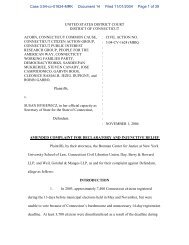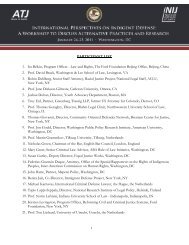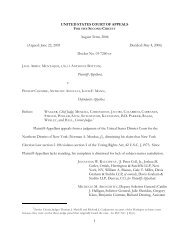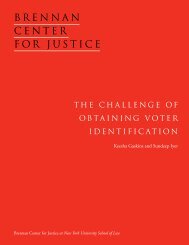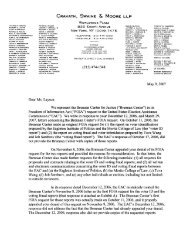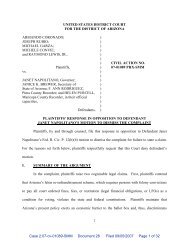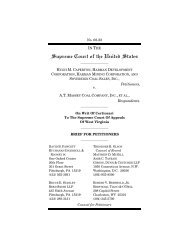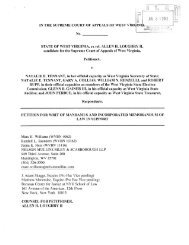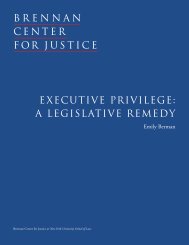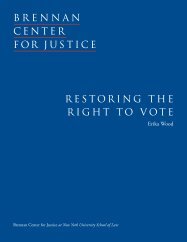MEMORANDUM OF LAW IN SUPPORT OF PLAINTIFFS' MOTION ...
MEMORANDUM OF LAW IN SUPPORT OF PLAINTIFFS' MOTION ...
MEMORANDUM OF LAW IN SUPPORT OF PLAINTIFFS' MOTION ...
You also want an ePaper? Increase the reach of your titles
YUMPU automatically turns print PDFs into web optimized ePapers that Google loves.
for delegate slates, is more burdensome than the sole requirement in most states foraccess to the real primary ballot. 10A handful of states continue to include a party convention among it methods ofnominating candidates or selecting candidates for the primary ballot. Three states withmandatory primaries also permit conventions or party committees to name candidates forthe primary ballot, but, each provides, by law, an alternative route to the ballot bypetition. 11See 50-State Chart (specifically, Colorado, New Mexico, and New York).Five states (Alabama, Nebraska, South Carolina, Utah, and Virginia) do not requireparties to use primaries to nominate candidates for the general election, but unlikeConnecticut, each of these has a system of primary ballot access that permits candidatesto pay a fee or submit petitions for ballot access. See 50-State Chart. 12Connecticut, then, stands with only five other states in not requiring its majorparties to nominate their candidates by primary and then allowing access to the primaryballot by petition or filing fee. Connecticut stands alone, however, in prohibiting, bystate law, a direct primary for all statewide and federal offices and most state legislativeoffices, depending on how a district’s lines are drawn. Only in Connecticut are10 To force a pre-primary primary (or to get on the primary ballot in a single-towndistrict), a candidate must file petitions with the signatures of 5% of the party voters inthe town. § 9-410(c) While we do not challenge the petition requirement here, it isnotable that the petition requirement for access to the real primary ballot in most otherstates is significantly lower than 5%. See 50-State Chart.11 Under Massachusetts state law, candidates for statewide races, for example, must filepetitions with the signatures of 10,000 voters (not registered party members) to receiveballot status. Mass. Gen. Laws ch 53 § 44. By party rule, however, candidates must alsoreceive at least 15% of the convention vote for ballot status. See Don’t Just Stand ThereRun: A Guide to Candidate Qualifying in the 2002 Election at 8 (available athttp://www.state.ma.us/sec/ele/elepdf/dontstand.pdf).12 In Indiana and Michigan, candidates for certain statewide offices, such lieutenantgovernor and attorney general, are nominated by convention. See 50-State Chart.18



